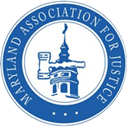Questions and Answers about Death Claims in Maryland
If a loved one died due to abuse or neglect while in the care of a nursing home, assisted living facility or group home, your family may be able to pursue a claim against the facility’s owners and operators for money damages to hold them accountable for their actions and your losses. The death of a loved one is a difficult time for everyone, especially if the circumstances show the death was preventable. The Law Offices of Roger S. Weinberg helps families through challenges such as these with compassion and a strong desire to see responsible parties face justice in a civil court.
- What kinds of lawsuit may be brought due a death caused by abuse or neglect?
Each state has different laws regarding the types of actions that can be maintained against a person or facility resulting in the death of a loved one. While Roger S. Weinberg practices in Maryland, he has a strong network of other attorneys throughout the country that can be consulted with or he can co-counsel with. In Maryland, there are generally two types of actions.
Maryland Survival (Estate) Actions— By statute, (Estates and Trusts 7-401), Maryland law allows the decedent’s estate to recover “such damages as might have been recovered by the deceased himself had he or she survived the injury and brought the action”. Thus, the reason for the term, “survival claim”. The Personal Representative handling the estate may recover:
- Expenses, including medical expenses, incurred between the time of the injury and death.
- Funeral expenses up to the statutory limit, which is currently $10,000.
- Lost wages between the time of injury and death.
- Conscious pain and mental suffering. To recover for this, the personal representative must prove:
- that the defendant’s negligence was the direct and proximate cause of the injury
- that the decedent lived for some period after the incident(s) causing injury
- that between the time of the incident and death, the decedent suffered conscious pain. Expert testimony would generally be needed to prove this.
- Other damages, such as a loss of consortium, may be recoverable in a survival action.
Recovery for pain and suffering and loss of consortium are considered non-economic damages and are subject to Maryland’s cap on non-economic damages. This cap changes yearly. There are different caps for medical and nursing malpractice actions and those which are non-medical malpractice actions, such as a car accident. The caps also differ if there is only a survival action versus whether there is a wrongful death action or both. Punitive damages (money awarded to punish the defendant) may be available if the defendant acted with malice (there was conscious and deliberate wrongdoing, an evil or wrongful motive, an intent to injure, ill will or fraud). Gross negligence is not enough in Maryland to pursue punitive damages.
Solatium damages include mental anguish, emotional pain and suffering, loss of society, companionship, comfort, protection, care, attention, advice, counsel, training, or guidance occasioned by the death. The action is brought by the individuals and not by the personal representative of the estate. Household services are the losses suffered by a spouse for duties to maintain a home, household or helpful to the deceased spouse’s occupation.
The Wrongful Death beneficiaries are broken down into different classes. The primary class consists of the following individuals who are allowed to bring a wrongful death action:
- Spouse of the deceased
- Child of the deceased
- Parent of a deceased child
- Parent of a deceased adult child OR to whom a parent contributed more than 50% support.
Each of these class members may have different causes of action for economic and non-economic loss. For example, a minor child may have more economic losses due to the death of a parent than an adult child, including a claim for educational costs
If there is no person(s) in the primary class, the Wrongful Death Statute allows a secondary beneficiary who is related to the decedent by blood or marriage to bring an action if they are substantially dependent on the deceased.
If there are no primary or secondary beneficiaries, than a wrongful death action cannot be maintained in Maryland.
- What must be proven?
The plaintiff has the burden of showing the defendant (or multiple defendants) is legally liable for the injury or death. Plaintiff must show that it’s more likely than not that the defendant is responsible for the injury or death. The legal claim may be based either on an allegation that someone took an intentional act that caused the death or a claim that it was the result of negligence.
For any negligence claim, the plaintiff would need to show the defendant owed the deceased a duty of care (there was an obligation to do or not do something), the duty was breached, the breach was a direct and proximate cause of the injury or death and the injury or death caused the damages the plaintiff seeks.
Survival actions and Wrongful Death actions vary in what needs to be proven. Both types of actions require that defendant(s) owe a standard of care or duty to the resident of a facility and a breach of that standard of care or duty. That’s where the similarity ends. In a survival action, the personal representative of the estate must prove that the breaches caused the injury and pain and suffering. In a wrongful death action, each of the individuals must prove that the death was caused by the defendants’ breaches. Further, as stated above there are different damages that can be awarded for survival claims and those for wrongful death claims.
- When do I need to file a legal action?
Maryland’s statute of limitations and case law create deadlines for filing of a survival and wrongful death lawsuits. Survival actions must be filed within three years of the date of the beginning of the alleged negligence. Wrongful death actions must be filed within three years from the date of death. The limitations date could therefore be different.
4 How do I file a survival and/or a wrongful death action?
Despite different parties and filing limitations periods, in Maryland, there can only be one lawsuit for the death of a person. Various Maryland Statutes (Courts and Judicial Proceedings 3-904) and Court Rules (15-1001) require all known possible “use” plaintiffs to be named in the lawsuit. Failure to name all possible class beneficiaries may result in voiding a settlement or court or jury verdict. Specific notice procedures are mandated by law so that that all potential beneficiaries have a right to participate in the action.
Actions against health care providers, like a nursing home, assisted living facility or group home, must first be filed in Maryland’s Health Care Alternative Dispute Resolution Office (HCADRO). There are very specific procedures to follow under the Courts and Judicial Proceedings Article 3-2A-01 to 3-2A-10. These procedures include the filing of a Certificate and Report of a Qualified Expert. Failure to follow the procedures can result in dismissal of your claim.
Once the procedures are followed, the case can then proceed in the Circuit Court of the county having jurisdiction over the lawsuit.
Wrongful death and survival actions require an in-depth investigation into the circumstances of the death, the victim’s health and what nursing home or assisted living facility employees did or didn’t do before the death. These can be highly complex cases that defendants normally forcefully defend, due not only to the possible monetary losses but also the bad publicity such a case creates. If your family lost a loved one, trying to resolve the issue without the help of an experienced attorney, who knows the procedures and the law, may lead to lost legal rights and compensation for far less than what the case is worth.
If your loved one died while being cared for by a Maryland nursing home or assisted living facility and you believe it was caused by abuse, neglect or negligence, contact our office. We can talk about what happened, how the law may apply and your legal options for obtaining compensation and justice for the deceased. At the Law Offices of Roger S. Weinberg you’ll find compassionate support and experienced advocates to help your family through the tough times. Call 410-825-3161 today to schedule a free consultation.


 Roger Weinberg is a skilled and experienced attorney who has pioneered the legal field of representing Nursing Home, Assisted Living, and Developmental Disability victims and their families who have experienced abuse, neglect and wrongful death. He is a leader in this field and teaches other lawyers, students and medical personnel about the laws impacting such cases. [
Roger Weinberg is a skilled and experienced attorney who has pioneered the legal field of representing Nursing Home, Assisted Living, and Developmental Disability victims and their families who have experienced abuse, neglect and wrongful death. He is a leader in this field and teaches other lawyers, students and medical personnel about the laws impacting such cases. [ 



